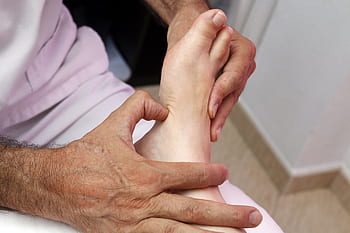Introduction:
Reflexology is a type of massage that involves applying different amounts of pressure to the feet, hands, and ears. It’s based on a theory that these body parts are connected to certain organs and body systems. People who practice this technique are called reflexologists.
How does Reflexology work?
Reflexology rests on the ancient Chinese belief in qi or “vital energy.” According to this belief, qi flows through each person. When a person feels stressed, their body blocks qi.
This can cause an imbalance in the body that leads to illness. Reflexology aims to keep qi flowing through the body, keeping it balanced and disease free.
Other theories:
In the 1890s, British scientists found that nerves connect the skin and internal organs. They also found that the body’s entire nervous system tends to adjust to outside factors, including touch. A reflexologist’s touch may help to calm the central nervous system, promoting relaxation and other benefits just like any form of massage.
Others believe that the brain creates pain as a subjective experience. Sometimes, the brain reacts to physical pain. But in other cases, it may create pain in response to emotional or mental distress.
Some believe that reflexology can reduce pain through calming touch, which may help to improve someone’s mood and reduce stress.
Potential benefits of Reflexology:
So far, there’s limited evidence that reflexology may help to:
- reduce stress and anxiety
- reduce pain
- lift mood
- improve general well-being
- boost their immune system
- fight cancer
- get over colds and bacterial infections
- clear up sinus issues
- recover from back problems
- correct hormonal imbalances
- boost fertility
- improve digestion
- ease arthritis pain
- treat nerve problems and numbness from cancer drugs (peripheral neuropathy)
Is Reflexology safe?
Generally, reflexology is very safe, even for people living with serious health conditions. It’s noninvasive and comfortable to receive, so it may be worth trying if it’s something you’re interested in.
However, you should talk to your doctor first if you have any of the following health issues:
- circulatory problems in the feet
- blood clots or inflammation of your leg veins
- gout
- foot ulcers
- fungal infections, like athlete’s foot
- open wounds on your hands or feet
- thyroid problems
- epilepsy
- A low platelet count or other blood problems, which can make you bruise and bleed more easily.
Conclusion:
Reflexology may not be a scientifically proven medical treatment for disease, but studies suggest it’s a helpful complementary treatment, especially for stress and anxiety. Talk to your doctor if you have any serious existing conditions before seeking treatment.
